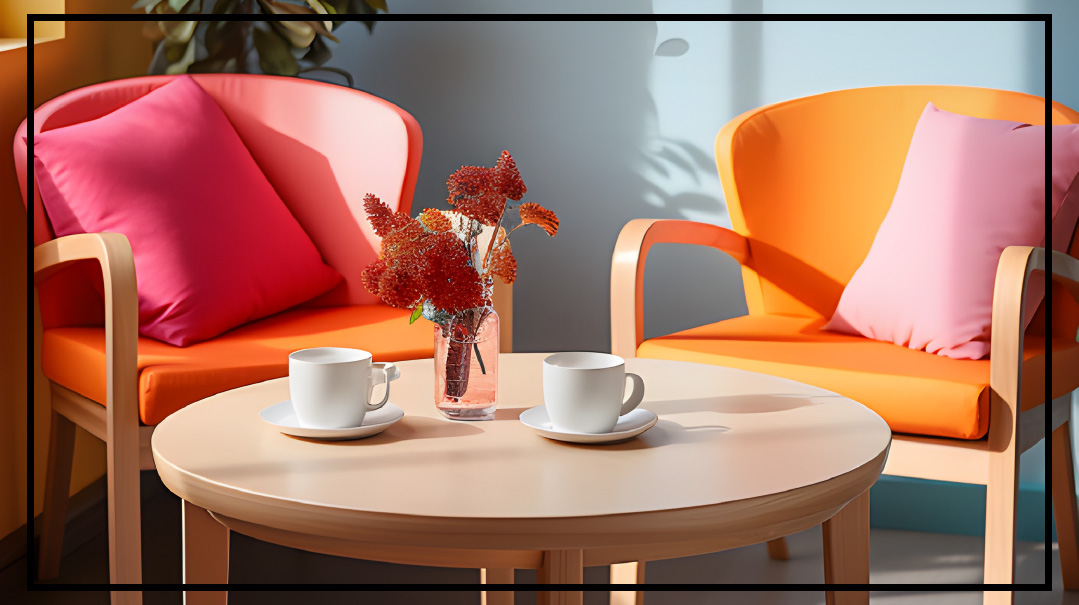Spreadsheet
| September 26, 2023Honestly, I can’t keep track of Dalia’s wardrobe, even though she’s forever posting pictures of her new purchases on our family chat

Dalia is caressing a YSL crossbody bag as if it’s a newborn baby.
“Have you ever felt anything so soft and supple? And look at the stitching! It’s like a piece of art, no? Like a sculpture!”
She hands it to me, and, to be polite, I give the bag a little pat. “You’re a terrible saleswoman.”
“And you’re a totally aggravating shopper.” Dalia puts her hands on my shoulders and swings me around, so that I’m looking at myself in the full-length mirror. Behind me, a newly-married wearing five gold bangles and a band fall down to her waist is angling around me to peer at herself with a Gucci scarf slung around her neck.
Dalia holds the bag up to my shoulder. “Picture yourself walking into the office with this. You’d blow Shelley’s mind with jealousy.”
I make a face. “What I’d blow is my chance to ask her for a raise.”
Dalia waves her hand. “Au contraire. People respect women who dress well.”
I give a brief, curious glance at myself. Does a leather bag with a designer price really improve my image? Personally, I’m not seeing it.
“You know, Shaina,” she continues, “you’re allowed to let yourself just enjoy life every now and then instead of always looking at the price tag.”
My fingers dig into the tote’s soft and supple leather. Who said I don’t enjoy my life? Then I look at the price tag — and nearly drop the bag. “This costs twelve hundred dollars!”
“Ah, but it’s forty percent off.”
She says it as if DeLuxe Accessories is giving the stuff away for free.
“Do you know how much forty percent of twelve hundred dollars is?” I demand. She shrugs, as I whip out my calculator. “Four hundred and eighty dollars. That’s how much you get off. Which means you’re still paying” — I do another calculation, this time in my head — “seven hundred and twenty dollars. For a bag. If I wanted it so badly, I’d buy a knockoff.”
“You can always tell,” she says.
“I can’t.”
My cousin rolls her eyes. Clearly, she isn’t referring to fashion-challenged people like me. Nevertheless, she admits defeat and slings the bag over her own shoulder instead, examining herself critically in the mirror.
“Hmm, what do you think?”
“Don’t you already have, like, five pocketbooks?”
“Six.” She grins impishly at me. “But this peach would go so well with my new Louboutin shoes, wouldn’t it?”
Honestly, I can’t keep track of Dalia’s wardrobe, even though she’s forever posting pictures of her new purchases on our family chat.
“Umm,” I mumble.
She rolls her eyes. “You. Are. Hopeless.”
Poor Dalia; of all of the siblings or cousins she could have ended up in the same community with, she got stuck with me.
She’s still deliberating aloud about the color, but I also catch her sneaking her own peek at the price tag and chewing her lips. It’s not hard to guess what’s going through her mind. I’ve often wondered how Mutti is able to finance his wife’s spending habits; after all, a dentist can make a nice salary but it’s not as if he were killing it in real estate or something.
I wait. I’ve already presented her with the facts and figures; now it’s up to her to reach the responsible decision on her own.
She closes her eyes briefly, then flips her head back defiantly and flashes me a grin.
“Tully’s bar mitzvah is coming up; we’ll have so many simchah-related expenses, what’s one more?”
“You mean, Mutti will never know,” I say sardonically.
“That, too.” She winks.
I clench my teeth. This is so wrong, on so many levels. It’s none of your business. Keep your mouth closed. Keep your mouth—
“You know, there’s a value to not spending every dollar you have.”
Dalia’s face instantly tightens. “Yes, Shaina, I know all about the millions you have squirreled away in your savings accounts. Your bank is really living it up. But if you haven’t figured it out by now, I’m different from you, okay? I like nice things. I need nice things.”
But even though she determinedly swipes her credit card a few minutes later, that gleam of carefree excitement seems decidedly fake.
* * *
While I don’t have millions squirreled away, I do have savings and I’m quite proud of them, thank you. I’m doing my monthly accounting now, and I’m pleased to see our investments have gone up.
“Take a look at this,” I say to Dovid. “Meira’s and Chayale’s chasunah funds grew ten percent! Yisrael’s went up by eight percent, and Tzvi’s went up seven, which is also pretty good. And look at our 401K. Nice, right? I’m wondering if we should increase our contributions; they say this is the time, before our kids get older and our expenses start mounting.”
Dovid gamely peers at my screen, though we both know that this is my baby.
“You’re the CPA,” he says. “I trust you to make the long-term financial decisions.”
Which is exactly the way we both like it.
Our money conversation only happened after we were engaged, which in retrospect was exceedingly dumb, but, baruch Hashem, it worked out. I told Dovid my views on budgeting carefully and starting to save from early on. Dovid replied that he didn’t know an IRA from the IRS (“though isn’t one of them a terrorist group?”) but he was all for living simply.
It was a match made in Heaven.
Now he looks away from my spreadsheet and says, “We’re having the Rappaports this Shabbos, right?”
I raise my eyebrow. “Yes.” We’d just discussed this yesterday. Our family and Dalia’s had long ago started a tradition to get together every Shabbos Mevarchim. This month is our turn to host.
Dovid tugs at his beard. “I was wondering if, maybe, we should buy a Glenlivet for Shabbos. Nothing ridiculously expensive, but, you know, to be a good host. Mutti always has a few bottles on his table to offer his guests.”
My eyebrows are now shooting up into my snood. “And Dalia always serves three-hundred-dollar meat boards and four-dollars-a-piece chocolate miniatures for dessert. Are you telling me I need to buy that, too?”
“No, of course not,” he says quickly. “But I just thought it might be nice… I mean, seeing these numbers, baruch Hashem, we can afford to splurge every now and then, m’din hachnassas orchim.”
“Because of hachnassas orchim or to show that we’re just as comfortable as the Rappaports?” I know I’m being mean, but I’m just so taken aback. Can this really be my husband talking?
Dovid frowns. “This isn’t about showing off. But if there are certain standards that have become accepted in our community when hosting, well, it just feels that we’re insulting our guests if we don’t offer them the same. It’s one thing if we can’t afford it, of course. But since we can….”
My mouth drops open. “Do you know why we can afford it? The only reason we have so much in savings is because we’re careful to spend responsibly and put aside money each month! If we were trying to live according to the standards of people like the Rappaports on your rebbi salary and my part-time accounting job, we would be up to our ears in debt! Like probably half our community is.”
I know I’m ranting, but, honestly, how can he not see the obvious? For that matter, how can everyone else not see the obvious?
Dovid takes a step back. “Okay, okay, you’re the money guru around here. You’re doing a fabulous job managing our finances. I just, you know, thought I’d ask….”
So, of course, I feel terribly guilty, and when I go shopping that week, I hold my nose and buy a two-hundred-dollar bottle of scotch (after consulting with the liquor store salesman, who doesn’t even look old enough to buy what he’s selling). I even spring for a box of pareve ice cream cones for the kids, though I cringe at the inflated price. It feels like such a waste when I can make a perfectly yummy tray of brownies but, hey, I’m a good wife.
Mutti certainly seems to appreciate the Glenlivet, based on the way his eyes light up when Dovid places the bottle on the table before kiddush, and the way he keeps filling up his shot glass throughout the meal. I’d counted on this bottle lasting for several months, and I have to force myself to look away and stop counting every ounce he drinks.
Meanwhile, Dalia is in full throttle about her plans for the bar mitzvah.
“I’m debating about what to serve for the entrees. Three different meats on the plate are in now, but should I do two beefs and a veal? Or maybe lamb? And the music, Tully loves Mordechai Shapiro so much, I’d love to get him, but I’m not sure….”
A quick glance toward Mutti tells me what she’s not sure about.
“And then there’s Tully’s entrance into the hall. My friend told me about this really spectacular bar mitzvah she went to where the boy dropped down from the ceiling! They constructed some platform on a wire, and there he was, flying through the air. She told me it was literally showstopping, people were talking about it for months. I wonder if—”
“Cool!” Tully exclaims, but his father shakes his head.
“We’re not constructing platforms on the ceiling,” Mutti says. His tone is mild, but Dalia colors and, flustered, begins to fuss with her four-year-old daughter.
“Shira, you’re not eating anything. Don’t you want some of this yummy cholent? Or schnitzel?”
Shira’s lips pucker. “I don’t like it.”
“So what do you want, sweets?”
“I want pastrami!”
Dalia looks at me apologetically. “Do you happen to have—?”
I struggle internally for a brief second. Yes, I happen to have pastrami in my fridge, but, hello, if I’d intended to serve it, I would have. As I deliberate what to answer, my Meira jumps up.
“Yes, we do. I’ll get you some, Shira.” And, instead of bringing Shira one piece of pastrami, like I would have done, she brings the whole package to the table.
My fingernails dig into my palm and I feel my insides clench as all of the children pounce on the deli.
It’s just one package of meat, I tell myself. One package at thirty-eight dollars a pound. I take a breath, trying to relax. It’s not a big deal. It’s really not. As Dovid said, we can afford it.
So why do I feel so tense inside?
* * *
Dalia is picking at the Café Au Lait health salad (20 bucks for lettuce, tomatoes and cucumbers, but who am I to judge?) while I eat my fettucine alfredo.
Dalia watches me eat. “That looks so decadent.”
I grin. “Want some?”
“Yes,” she sighs. “But I need to fit into my dress.”
The Dress has been the topic of conversation for the past two weeks. Even I was curious enough to look at the picture she posted to the “Just the Girls” cousins chat, especially when she captioned it “worth every penny, no?” (Since she was clearly begging to be asked, I did. Twenty-five hundred dollars. I wrote back that she could have gotten three discounted YSL bags for that amount of money, but she didn’t get the barb.)
“Then why did you ask me to meet you for lunch?” I ask. “To torture yourself?”
I’m seriously wondering. Dalia had seemed quite intent on getting together, texting me repeatedly to find out when my lunch break was and what day worked best for me.
She flashes me a smile that is totally forced. “I wanted to spend some time together before I get crazy busy with the bar mitzvah. Can you believe it’s only a month away?”
Considering how long I’ve been hearing about this simchah, I’m surprised we still have such a way to go, but I shake my head in amazement. “Crazy!”
Then I take another forkful of my fettucine. And wait.
Dalia drums her manicured fingernails against the salad bowl. “I also wanted to ask you something. A tiny favor.”
I chew slowly, looking at her.
She takes a breath. “See, the bar mitzvah is coming out to be… well, more money than we expected. I don’t know how it happened, but everything’s so expensive now, with inflation and all. You know how it is.”
There are so many answers I want to give to that, but I merely nod and make what I hope is an empathetic expression, which Dalia probably doesn’t even catch, because she’s looking down at her lettuce.
“So, I was wondering…” she clears her throat, “if you’d be able to, um, lend me some money. To cover the shortfall in our budget.”
“You have a budget?” I blurt out, in what is probably not the most tactful reaction to her request.
Dalia blinks. “Uh, yeah. We do. I mean, Mutti made up a whole budget for the bar mitzvah, back when we first started planning it.” She shifts in her seat.
Aha. I’m starting to see what’s going on. I ask quietly, “Does Mutti know that you’re looking to borrow money?”
She reddens. “No. He doesn’t.”
Abruptly, she reaches out and grabs my hand. “Shaina, you’ve got to promise me not to tell him. He’ll kill me if he finds out! But… he’ll also kill me if he sees how much I’ve been spending.”
The raw panic in her voice melts me. “Don’t worry, of course I won’t say a word.”
She’s looking at me expectantly; I stall. “So, um, what happened to that budget that you made up?”
Dalia scowls. “It was totally unrealistic. Mutti doesn’t realize how much things cost! I mean, to put down only twenty thousand for the kiddush? That barely covers the paper goods and décor!”
Sure, if you’re doing Rappaport-level décor. “And you can’t go simpler? I mean, we’re not up to bar mitzvahs yet, but I’d imagine if you do a kiddush with nice cakes and salads and simple but pretty paper goods, it would cost well under twenty thousand.”
She gives me a look worthy of the ridiculous question.
“Shaina, have you, like, been to a bar mitzvah kiddush in the past decade? It would be totally mortifying to make a kiddush like you’re describing.”
I think of Dovid’s words — it just feels that we’re insulting our guests if we don’t offer them the same — and my heart aches. What are we as a society doing to ourselves?
“So why didn’t you tell this to Mutti when you were setting up the budget?” I ask.
My cousin shrugs. “I don’t know; I didn’t really pay much attention to the numbers he was putting down.”
No, she wouldn’t; Dalia and budgets just don’t go together. I’m not even sure why I’m pressing the point so much. Maybe I’m getting a teeny-weeny bit of pleasure from forcing her to acknowledge, for the first time in her life, that fiscal responsibility matters?
Poor Dalia. It’s not an easy lesson for someone like her to learn.
I pick up a napkin and begin to twist it. “I don’t get how borrowing money from me will help you with Mutti. He’ll still see that you’re spending over budget.”
“No, I’ve thought it out.” She leans forward eagerly. “See, I’ll give you some of the bills to pay yourself, and I’ll pay you back. This way, Mutti will never even see them.”
“Uh huh.” I twist the napkin tighter. “And, um, how do you plan on paying me back, without Mutti noticing?”
Please tell me Dalia’s at least considered the question of paying me back, I think, as I see her frown.
“Well, I figured I would cut back on our regular expenses over the next few months — you know, food, clothing — and use that money to repay you.”
“You’re going to cut back on expenses?” I ask skeptically.
She lifts her chin. “Sure. Despite what you think, I’m perfectly capable of being careful with money when I need to be. It’s not like I grew up rich.”
No, she didn’t. My aunt and uncle were the same middle-class working folk that my own parents were. The difference was that Dalia was their bas zekunim and, as my mother would always say, they lost their heads when it came to her upbringing. She was indulged like none of her much older siblings had been. Now her parents were living on a fixed retirement income and no longer had the means to finance her expensive tastes. Which made it Mutti’s problem.
And, apparently, mine.
“So, what do you say?” she asks. “Can you help me?”
I take a breath. “How much money are we talking?”
“I was thinking about fifteen thousand.” As my eyes widen, she adds, “I mean, for you that’s a drop in the bucket, with all the millions you have in those savings accounts.”
She grins, as if my savings accounts are a personal joke between us. Resentment bubbles up inside. Fifteen thousand dollars? And that’s just the shortfall in her budget?
“That’s a lot of money,” I say, and her grin falters. “I — I’ll have to talk to Dovid about it.”
“Of course.” She swallows. “But… if you possibly can, I’ll be so, so grateful. I don’t know what I’ll do otherwise.”
Every rational voice in my head is demanding I nip this unreasonable request in the bud right now, but it’s hard to ignore the beseeching look in her eyes.
“I’ll talk it over with Dovid and get back to you.”
* * *
“Basically, she’s being irresponsible about money as usual, and I have to pay for it.” I’m pacing back and forth in our den, my fist clenched. The more I talk this out, the angrier I get.
“It’s a chutzpah!” I burst out so loudly that Dovid jumps. “For years she’s made fun of me for being careful about my spending, for not buying everything in sight like she does. And now, she comes and asks to borrow fifteen thousand dollars that we’ve scrimped and sacrificed to save, because she doesn’t know how to curb her own spending!”
Dovid is nodding silently along, which encourages me to continue.
“I mean, wouldn’t lending her this money be simply enabling her dysfunctional spending habits? Maybe this is the wake-up call she needs to finally shake her up and teach her some self-control! If she continues in the path she’s on, she’ll soon be hundreds of thousands of dollars in debt!”
“You assume, then, that she won’t be able to pay back the loan?”
His voice is soft, but it ignites the fury inside. “Bingo! You hit the nail on the head! Dalia? Cut back on expenses? Hah! We’ll never see that money again! She’s basically asking me for a fifteen-thousand-dollar gift to pay for a bar mitzvah party that goes against every principle I believe in! And for what? To raise the bar so that every other family will also feel compelled to go into debt when making a bar mitzvah?”
My hands are shaking and as I pause to take a few steadying breaths, my eyes focus on the painting on my wall of a wooden cottage on a mountain side. I’d seen the painting at the annual local Tomchei Shabbos fundraiser — that year they’d decided to go highbrow and run an art auction — and had commented to Dalia how beautiful it was; there was something so compelling about the exquisite simplicity and loneliness. Of course, I hadn’t even considered buying such an expensive piece of art, but to my shock, when the painting came up for bid, Dalia called out a number, and kept going higher until she’d outbid everyone else. Then she’d turned to me with a wink and said, “Happy birthday.”
I’d been speechless. It had been so extravagant, so generous, so… Dalia.
Now, my anger slowly deflates. In a more level voice, I say, “Maybe I’m not being fair. I can’t really imagine Dalia not paying back such a large loan. It would be too embarrassing for her, especially since we’re so close. But still, I’m not seeing how she’ll manage to put together the money. And all my other objections still stand.”
Dovid rubs his nose. “So, you want to say no, but you’re feeling guilty?”
I turn to him and hold my arms out. “She’s my cousin. And her shalom bayis is at stake. That’s where I keep getting stuck.”
Dovid’s eyes crinkle. “If you bail her out now, it will only be kicking the can down the road,” he says. “At some point, this is an issue that they’re going to have to work out. I can’t imagine that borrowing large sums behind her husband’s back is what’s going to save their shalom bayis.”
Ahh. That was exactly what I needed to hear. I smile as relief courses through me. “You’re so right. I’m going to tell her no. I wouldn’t be doing her any favors by lending her the money.”
* * *
Despite my righteous certainty, breaking the news to Dalia is just as difficult as I anticipate. I don’t know if she believes me when I tell her that we don’t have that money available right now to lend (which is kind of true, as it’s all tied up in investments or CDs). She goes very quiet on the phone, so quiet that I wonder if she’s hung up. Then she cries and says in a strangled voice that she doesn’t know what she’s going to do. I offer to contact gemachs for her, and also offer to help her with her budgeting, but she doesn’t seem to hear me and gets off the phone quickly.
If I made the right decision, why do I feel so terribly guilty?
I’m still feeling terrible three nights later, when Dalia texts me to back out of this year’s Tomchei Shabbos event, which we’ve gone to together every year since we moved to the community. Sorry, too busy with the BM, she writes, but we both know better.
Instead, I sit with women from my block, and I try not to think about Dalia even when the conversation turns to simchahs.
“My friend works as a coordinator for Tomchei Shabbos,” my neighbor Faigy says, “and she tells me that you’d never believe how many families that live in big houses and make fancy simchahs are getting food packages.”
“That’s insane!” I cry indignantly. “Why can’t a tzedakah organization make a condition that a family’s only entitled to receive communal funds if they can show they’re being responsible in their spending?”
Many of the women at the table nod, but some shift uncomfortably. “I agree with you,” Faigy says. “But, you know, it’s not so simple. If they’re used to making big simchahs, it’s embarrassing to suddenly downgrade. Doesn’t the halachah say we need to provide for a poor person according to the standard he’s used to?”
“Yeah, yeah,” I mutter. But still, come on. If these people had been responsible about their spending to begin with, they wouldn’t have gotten themselves into financial trouble.
“Speaking of fancy simchahs, I hear the Rappaports are making a bar mitzvah soon,” Naomi from across the street comments, looking at me. “That should be some simchah, huh?”
“It certainly looks like it,” I say briefly. I’m really not interested in discussing Dalia right now.
“I guess that’s why she didn’t come tonight?” Faigy asks me and I nod. “Too bad,” she continues. “I mean for Tomchei Shabbos. Dalia’s always one of the biggest donors at this event. Remember the year they had that art auction and she bought that painting for, what was it, four thousand?”
I squirm.
“And last year, when she won that sheitel?” Naomi adds. “I heard that she’d put so many tickets in the prize box that she practically paid the cost of the sheitel!”
I laugh; that is so typical Dalia. And she’d probably been thrilled about the “free” sheitel she’d won.
But no one else at the table is laughing.
“Well, baruch Hashem for the wealthy people in our community, right?” Faigy says. “If not for them, how would we support our tzedakah organizations?”
My eyes open wide. Wealthy? But Dalia’s not wealthy! I feel like telling them. She’s just a big spender! She’s always openhanded with her money — whether she’s buying herself a seventh designer pocketbook… or providing Shabbos food for the poor.
I look down at the pocketbook sitting in my own lap, and open and close the clasp several times as I force myself to ask the uncomfortable question. How much money were you planning on donating tonight, Shaina? I know the answer: the same as every year. I pay the entrance fee, and that’s it. In fact, I pride myself on not getting sucked into buying auction tickets.
“Excuse me,” I mutter as I stand up. “I, uh, forgot to put in for a prize I wanted.”
Aware that I probably sounded stupid, I blush as I rush off to ease my guilt. I choose the most frivolous prize on the list — the spa pampering package — and promise myself that if my ticket wins, I’m giving the prize to Dalia.
I don’t win.
* * *
“Investments down this month?”
I look up as Dovid walks into my home office, where I’m peering at my spreadsheets.
“I hope not; I haven’t checked recently,” I say. “Why do you ask?”
“Just the expression on your face. When you frown like that, it’s usually because we’ve lost money.”
I swallow and turn away from the computer screen.
“Dovid, do you think I’m too tightfisted?”
My husband throws me a surprised look. “Tightfisted? I dunno. You’re careful about money. You’re frugal.”
I stand up. “Frugal, thrifty, tightfisted, stingy. There’s a fine line between them. Have I crossed that line?”
Dovid leans against the wall. “Is this about Dalia again?”
“Yes! I mean, no! It’s about me.” I sit back down and scroll down my spreadsheets. Investments. Budgets. Savings accounts. Wise, careful financial planning. I know I’m doing the right thing for my family, the responsible thing, and I’m proud of it.
But does that mean I made the right choice about Dalia?
I jab my finger at the screen. “This is good, right? It’s a good middah to only spend what you have, to be mistapek bemu’at. I’m proud of the fact that we’re careful to live simply. But there’s a flip side to every middah.”
I take a breath and turn around to look at Dovid. “I still think what Dalia’s doing is wrong. I don’t think she should be spending so much money on a simchah, period, and I certainly don’t think she should be spending money she doesn’t have.”
My hands are clenched, I notice, and I loosen them. “But that’s her cheshbon, not mine. Maybe my job right now is to work on my own middos?”
Dovid raises an eyebrow. “What happened to everything you said the other day about enabling dysfunctional behavior?”
“I don’t know.” I honestly don’t. But I also know that I’m not the pushover type, and that this onetime loan won’t be the start of some unhealthy, manipulative financial relationship. “This is about me learning to be less judgmental and more giving.”
Dovid gestures to the computer screen. “Even if it means losing thousands of dollars?”
I look at my beautiful spreadsheet, my careful rows of numbers. The thought of losing $15,000 makes my stomach clench — and I’m not at all sure that I’m strong enough to keep that from ruining our relationship.
But doesn’t the fact that this is so hard and the other way was so easy tell me that this is the right decision for me?
“Even if it means losing thousands of dollars,” I say.
* * *
The Rappaport bar mitzvah is every bit the splash Dalia was dreaming of. She gives me a glowing look as I walk into the hall and see her, resplendent in her $2,500 gown.
“You are the best,” she whispers, pulling me in for a fierce hug.
A small part of me had hoped, when I told her we’d decided to lend her the money after all, that she’d reply that, in the end, she’d figured it all out and didn’t need to borrow anything.
But Dalia had been eagerly and effusively grateful and within five minutes, a bill had arrived in my inbox, from the florist. (Why do you need flowers at a bar mitzvah? I didn’t ask.)
I feel a bit uncomfortable as I stick my head around the mechitzah to wish Mutti mazel tov, but he beams back as he says, “Dalia’s really something, isn’t she? Can you believe she put this whole thing together?” And I realize that he, too, appreciates the finer things in life, even if he’s a tad clueless about how much those things cost, and that one day, the two of them will have to wake up and come to a financial reckoning together. Or not.
I sit down on a silk-draped chair and admire the table. The dazzling array of flowers is hanging artistically over a three-tiered centerpiece. At least my money went to good use, I can’t help but think sardonically as I take a bite of the pecan-crusted salmon appetizer. I straighten my shoulders and whisper to myself, “I did the right thing. This is what she needed.”
“What did you say?” asks the woman sitting next to me. Before I can answer, she continues, “Have you ever seen such gorgeous flowers?” She sighs. “I’m making a bar mitzvah in two weeks. I thought I had my centerpieces worked out, but now I see I’ll have to redo everything. Cascading orchids — wow! I wonder who her florist was.”
I’m about to tell her, but then think better of it. Instead, I take another forkful of salmon.
Somehow, the elegant, melt-in-your-mouth appetizer gets stuck in my throat.
(Originally featured in Mishpacha, Issue 980)
Oops! We could not locate your form.







